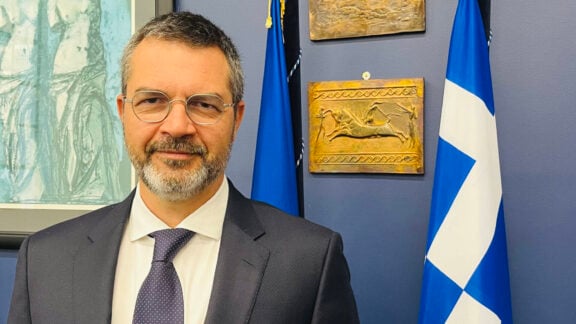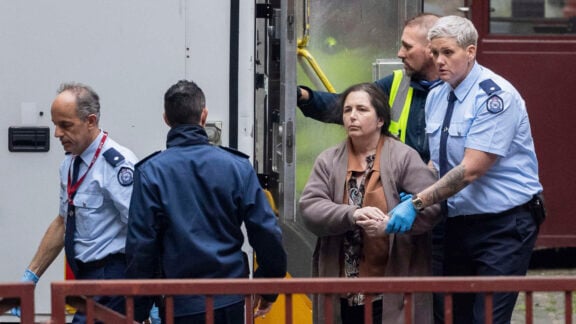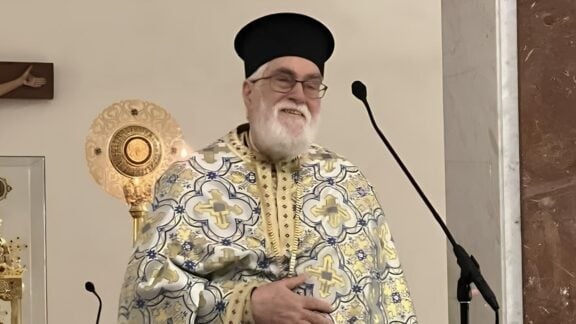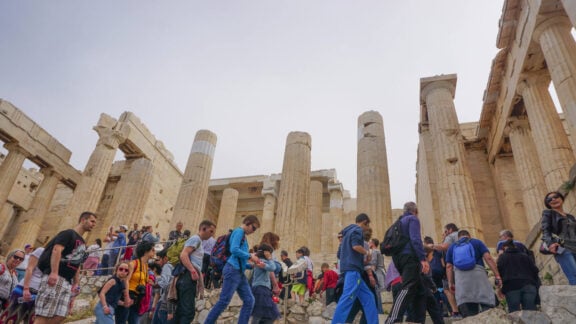There are two things I’m patiently waiting to hear Greek politicians and leaders to say, for the past six or seven years – i.e. since the beginning of this now chronic condition we learned to call ‘crisis’. I’m waiting to hear these things by the mouth of the people whose job is to manage this crisis. I’m waiting as a Greek citizen, as a journalist and now as a migrant, someone who chose to leave the country, instead of keep trying to walk on quicksand. The first thing I’m waiting to hear is an admission of collapse, an honest acknowledgement that the country has defaulted. I know that, today, we’re in a stage that this is completely redundant. Everybody knows the state that Greece is in, particularly those who feel the effect of default on their livelihood and survival: the jobless, the homeless, the underemployed, the underpaid, the pensioners, the cancer patients who can’t even get treatment. And yet, it is not insignificant. As any first-year psychology student knows, admission is the first step of solving a problem.
This is precisely what all of the four prime ministers who have risen in power in Greece during these seven years, have failed to do; nobody has had the courage to come forward to the Greek people and offer this cathartic redempting admission and acknowledgement of default, the statement that would practically mean for the country to restart from scratch. Instead, the whole political and economic narrative of the past few years has been focused in ways to “avoid” default, what to do so that the country does not fall of the cliff. As per our usual – and oh, so Greek – ways, we are trying to hide reality behind half-truths, instead of facing it.
The second – and most important – thing that I expect to hear from the country’s leadership is precisely an idea for the day after. How can we restart the economy and mainly, what kind of economy will that be? When I was in primary school, we were taught that the Greek economy is a trade and retail one. Our little minds could not quite grasp what that meant but id did not matter anyway. Because, at the time, Greece had just entered the European Economic Community, we were about to start getting flooded with funding from the Integrated Mediterranean Programmes, which then became “Delors packages” and “Santer packages” and then “Cohesion Funds” and “European Regional Development Fund” and now “Bailout Programs”. In the meantime, Greece was a country living on European funding – and for some reason, these funds did not turn into resources or national wealth. Now that these funds became ‘bailout programs’ it is imperative for somebody to come out and explain to the Greek people what is the new plan. What kind of economy will Greece have? Which is going to be the main source of wealth for the country? Will it be tourism? If so, shouldn’t there be a long-term national policy designed, one that can create a 12-month tourist season for Greece, one that can activate every part of the country, apart from the islands and coastal Greece, one that will facilitate environmental tourism and agricultural tourism and archaeological tourism and convention tourism, creating infrastructure and conditions for the country to welcome and host to everyone, regardless of nationality and wealth – from the backpackers to those eager to spend their days playing golf in luxury resorts?
Greece level of poor preparation for such a policy was never more obvious than that time when China’s PM visited the country. At the time, Antonis Samaras was PM in Greece and he saw this visit as an opportunity to wink at the cameras and imply that this visit means that thousands of tourists would flock to Greece, following their PM’s example. But if that had been the plan, shouldn’t Greece have a strategy ready, starting from the obvious, teaching Mandarin to the industry professionals? Equally erratic was his promise that ‘Google is under way’, which had made anyone dimly knowledgeable of the tech industry kringe with embarrassment. Before Samaras it was George Papandreou who dared to utter the words ‘Green Growth’, only to be met with ridicule by the developer-controlled-media, systematically admonishing the government to stop all this ecology and renewable energy nonsense and continue investing in construction. I know that the names Samaras and Papandreou sound like ancient history now, but I’m only referring to them because these were the last times any Greek PM said anything remotely relevant to the nature of Greek economy. Since then, a deadly silence has been prevailing.
The current PM, Alexis Tsipras, was re-elected, after the loud collapse of the anti-bailout negotiations, with the complete opposite mandate, to implement the bailout deal which has been holding Greece hostage and will determine the country’s survival (as for the survival of the country’s population, this is yet unclear). What is impressive is that nobody – not him, as PM, not the ‘institutions’ (i.e. the lenders’ representatives) practically dictating the country’s financial policies and determining its future, have come up with an answer to this simple question: What will Greece’s economy be? But what can you expect? They have still not told us that we defaulted.






